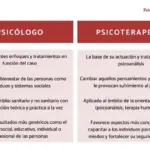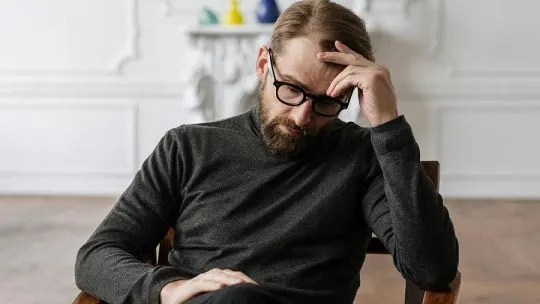
The topic of this article is very specific: the need for every psychotherapist to be a good trainer.
As is well known, there are several functions that a psychotherapist performs during a therapy process: creation of a healthy and safe relationship, continuous improvement of communication channels with the client, discovery of behavioral patterns, provision of the quantity and necessary quality of feedback…
The truth is that the development of all these functions is carried out jointly with the client and it is not usually necessary to do it in a hidden way: the ideal is that everything is done consciously and, as far as possible, pleasant.
Building a healthy and productive relationship takes time and a lot of attention.since it is always subject to adjustments and changes, depending on the progress and improvements made in the process.
We could say that Any therapeutic process carried out in a serious and professional manner is a “tailored suit” that adapts to the client perfectly, allowing the optimization of the use of all available resources.
But there is one element that is not usually given due attention: the role of the therapist as a trainer.
Training in psychotherapy
It is essential that every psychotherapy professional be a capable and effective trainer.
One of the phrases that is heard the most, especially during the first days of the therapeutic process is: “I do not know what’s happening to me”. When the patient comes for a consultation, he usually has a series of thoughts, sensations and feelings that he does not fully understand. Obviously, he has tried to find an explanation for them, but has not been able to do so satisfactorily. He realizes that all these experiences are harming him in his daily life.
And this is where the psychotherapist’s work as a trainer begins. In addition to all the functions we have mentioned and many more, This professional must be able to create a solvent and realistic, effective and practical story about his client’s situation.. And you have to be able to transmit it to them.
Therefore, a good psychotherapist must have experience, a great capacity for real listening, a remarkable ability to discover patterns and a large amount of prior knowledge. Not to mention an enormous ability to respond to unforeseen situationswhich will always occur (let’s not forget that psychotherapy is aimed at life, which is an always changing process).

Beyond theoretical knowledge
It is not enough to have extensive knowledge of psychopathology and the most frequent problems that affect people’s lives. You have to be able to use tools such as active listening, narration, the creation and application of metaphors, the creative use of humor…
In addition to that, you must have a large bank of scientific information, to be able to recommend videos, articles or books to clients, depending on their needs and capabilities.
You also need to know stories, thousands of them. Some will be real, others not, in order to offer models in which the client sees himself reflected. Stories in which it is also easy to see how they have been resolved. And these stories have to cover many registers, since it is not the same to talk to a person in love with books, a movie buff or someone who is only interested in current politics, for example.
Establishing a common language
On the other hand, it is very important creating a common language. This is an element that is usually ignored, but is of utmost importance: talking to a computer engineer is not the same as talking to a healthcare worker, to a fervent Catholic or to a convinced atheist. The entire therapeutic relationship is based on this common language, which will be created based on the particularities of the client rather than those of the therapist.
One of the most interesting resources to find a common language is to use hobbies as common ground. For example, to a person who is fond of gardening you can talk about “pruning useless thoughts”, “fertilizing parts of life with a good attitude”, “burning the stubble of resentment”, etc.
In conclusion…
If we put together all the elements that I just mentioned (and many more that I do not mention due to lack of space), we see that It is essential that a therapist be a first-rate pedagogue. Because an important part of their functions is to create an operational work structure and know how to transmit it, to offer their client a realistic story that allows them to face and overcome their situation and to transmit the most relevant knowledge and techniques in the most effective way possible. for the life of that person who has trusted the therapist.
In addition, you must explain how to apply knowledge and techniques in daily life, since above all, we seek understanding and effectiveness, that is, changes for the better.
As you can see, psychotherapist training is an endless process, in which you can always learn more and more. It is an endless learning that is joyful for those of us who are in love with this art-science as difficult and as beautiful as psychotherapy.








